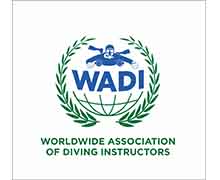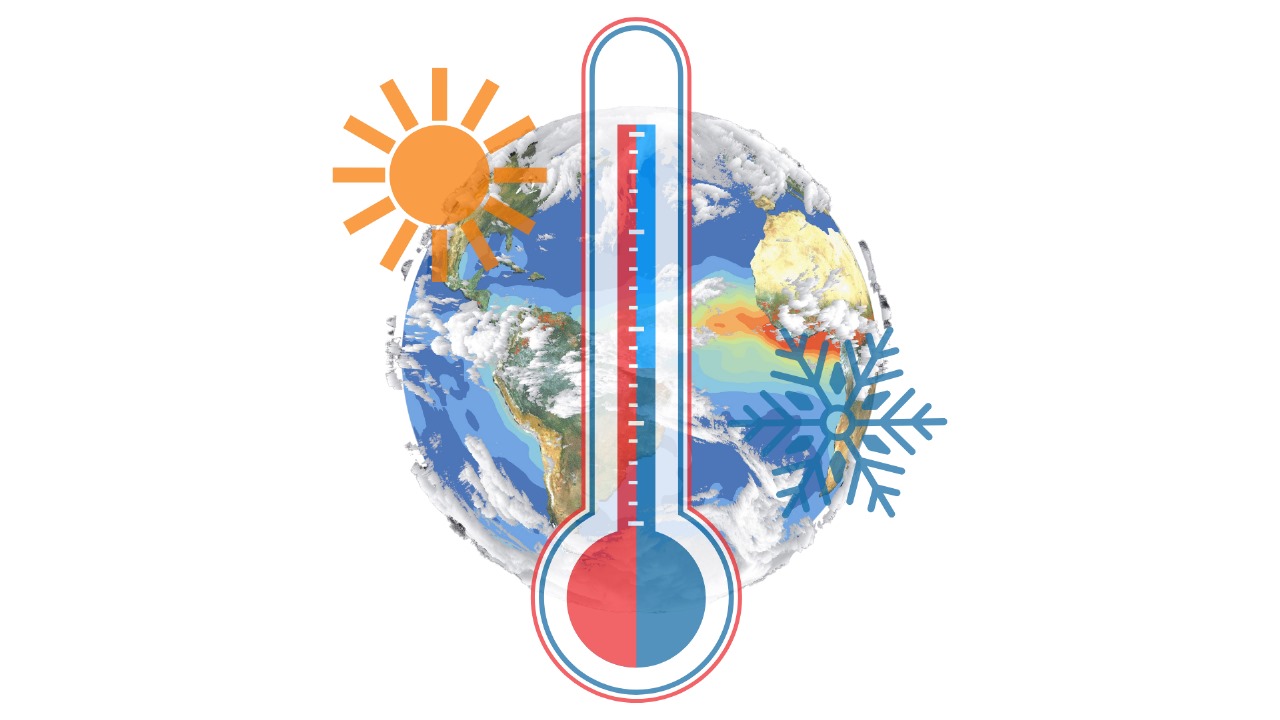WADI (Worldwide Association of Diving Instructors)
Recreational Scuba Diving
2024/05/12

In the world of underwater
exploration, the Worldwide Association of Diving Instructors (WADI) stands out
as a beacon of innovation and responsibility. Established with a vision to revolutionise
how diving is taught, WADI integrates modern technological advancements with
traditional diving education, ensuring a comprehensive and accessible learning
experience for all. As the diving community grows, the need for an evolved
approach that not only enhances skill but also promotes sustainability and
inclusivity has never been more critical.
WADI's modern methods extend beyond
mere technique, embracing a holistic approach that cares for the environment,
moderates equipment use, and upholds the rights of individuals to quality
training and life. This blog delves into how WADI is reshaping the world of
diving through these pillars, ensuring that the thrill of diving is matched by
a commitment to conservation and human dignity. As we explore the depths of
WADI’s contributions to diving and the broader societal impacts, it becomes
clear that this organisation is not just about exploring the seas but also
about safeguarding them for future generations.
WADI – The Modern Way to Learn Diving
Historical Context and Evolution
Diving has evolved significantly over the decades as a skill and recreational activity. Traditional diving training
was heavily reliant on physical classes and limited by geographical and
logistical constraints. WADI tis transforming this landscape through a
forward-thinking approach that leverages cutting-edge technology and updated
pedagogical techniques. This shift not only broadened access but also enhanced
the quality of education provided, setting higher standards in the diving
industry.
WADI's Educational Programs
WADI offers a range of courses, from
beginner levels to advanced and specialised diving certifications. What sets
these programs apart is their use of digital tools and immersive technologies.
For instance, approaching to virtual reality simulations will allow learners to
experience realistic diving environments from anywhere in the world, making
complex underwater scenarios accessible with less exposure to the associated
risks. Augmented reality overlays instructional content directly into the
trainee’s field of view during training dives, providing real-time guidance and
feedback.
The curriculum is designed to be
comprehensive, covering various aspects of diving, including safety procedures,
emergency response techniques, and the latest in diving technology. WADI's
programs emphasise practical experience underpinning a strong theoretical
foundation delivered through online modules and interactive sessions.
Benefits of Modern Learning Methods
The incorporation of digital education
tools has transformed the way diving is taught. These methods offer unmatched
flexibility, allowing students to learn at their own pace and on their own
schedule, which is particularly advantageous for people with busy lifestyles or
those living far from traditional dive centers. The multimedia nature of WADI’s
training materials makes learning more engaging and effective, with videos,
interactive simulations, and quizzes that cater to different learning styles.
Furthermore, WADI has cultivated a
vibrant community of divers through online forums and virtual meetups, enabling
learners to connect with mentors and peers globally. This community support
system not only aids in knowledge sharing but also fosters a sense of belonging
among members.
Environmental Stewardship by WADI
Promoting Sustainable Diving Practices
WADI is dedicated to teaching diving
and is committed to doing so responsibly. The organisation has developed a set
of guidelines aimed at minimising the ecological footprint of diving
activities. These guidelines cover how to interact with marine life, manage
waste, and select dive sites in a way that reduces environmental impact. WADI’s
approach encourages divers to become stewards of the ocean, advocating for
'leave no trace' practices that ensure dive sites remain pristine for future
visitors.
Conservation Initiatives and
Partnerships
Understanding divers' critical role in
marine conservation, WADI collaborates with various environmental groups and
marine parks worldwide. These partnerships focus on coral reef restoration,
species protection projects, and the cleanup of ocean debris. Through such
initiatives, WADI members get involved in hands-on conservation efforts, which help
protect marine ecosystems and provide divers with a deeper appreciation and
understanding of their underwater environments.
WADI also supports scientific research
by facilitating citizen science programs where divers collect data on marine
biodiversity and water quality. This data is invaluable for researchers and
helps inform conservation strategies and policies.
Education on Marine Biodiversity
Education is a powerful tool in
conservation, and WADI leverages this through the Green Guard courses for
non-divers and incorporating extensive marine biology education into its
curriculum. Divers learn about the complex ecosystems beneath the waves,
gaining insights into the importance of various species and their roles within
marine habitats. This knowledge empowers divers to make informed decisions and
participate more effectively in conservation efforts.
Encouraging Equipment Moderation
Minimalist Diving Waist Philosophy
WADI adopts a policy of reducing
single-use plastic waste, as it stipulates in the general standards and all
educational products that each diver must use a moldable mouthpiece due to its
proven benefit from the medical and environmental aspects and reusable clips instead
of the one-time use. This philosophy reduces the physical burden on divers and
limits the environmental impact of manufacturing and disposing of gear. By
teaching divers to optimise their equipment setup, WADI ensures that diving
activities remain sustainable and less intrusive to the marine environment.
Innovations in Diving Equipment
To support its minimalist philosophy,
WADI stays at the forefront of technological advancements in diving gear. The organisation
encourages using eco-friendly equipment, including biodegradable wetsuits and
energy-efficient underwater propulsion devices. These innovations enhance the
diving experience and align with WADI’s commitment to environmental
stewardship.
Advances in Eco-Friendly and Efficient
Gear
WADI is deeply encouraging the
advancement of eco-friendly diving technologies. The organisation supports and
promotes the development of sustainable gear that minimises environmental
degradation. Innovations such as lighter, more durable materials that reduce
energy consumption during manufacture and provide longer lifespans for products
are central to WADI's recommendations. By encouraging divers to adopt such
gear, WADI ensures that its commitment to sustainability is reflected in every
aspect of diving practice.
Advocating for Human Rights
Quality of Life and Diving
The WADI team believe that Diving is
more than a recreational activity; it is a means to enhance the quality of life
through physical and mental health benefits. WADI recognises this, ensuring its
programs are accessible to a broad audience, including those from underserved
communities. The organisation actively works to remove barriers to entry
through scholarships and funding for those who may not otherwise afford to
learn to dive.
Furthermore, WADI emphasises the
therapeutic aspects of diving, supporting programs that aid in rehabilitating
individuals with special needs. These initiatives foster a more inclusive
diving community and highlight how diving can be a powerful tool for improving
individuals' health and well-being.
WADI's Commitment to Fair Practices
WADI's commitment to human rights
extends to its employment and educational practices. The organisation ensures
fair treatment and adequate compensation for its instructors and advocates for
labour rights within the diving industry. WADI also promotes diversity and
inclusion, striving to create a welcoming environment for all, regardless of
background, nationality, or gender. This commitment is reflected in its
policies, designed to uphold the dignity and rights of every member and staff
member involved in its programs.
Conclusion
The Worldwide Association of Diving
Instructors (WADI) represents a modern approach to diving education that prioritises
the safety and skills of its divers and fosters a deep commitment to
environmental and social responsibilities. Through its innovative training
methods, environmental conservation efforts, encouragement of equipment
moderation, and advocacy for human rights, WADI is setting a new standard for
what it means to be a part of the global diving community.
As we look to the future, WADI
continues to innovate and expand its impact, aiming to inspire new generations
of divers who are as passionate about protecting our oceans as they are about
exploring them. For those interested in diving or seeking a community that
values both the environment and its people, WADI offers a pathway to engage in
meaningful and responsible diving experiences.
Let’s dive into a better future
together. Join WADI to be part of a movement that celebrates the beauty of the
underwater world while actively working to preserve it for future generations.











